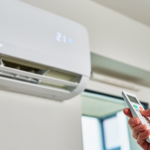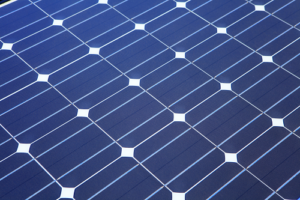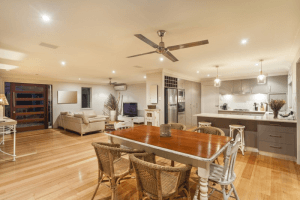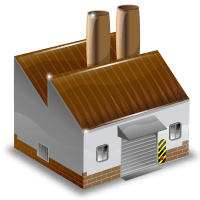Saving electricity isn’t always simple. Households especially in winter rely on electricity a lot. This doesn’t just happen because we have a need. You can change habits to help such as switching the power off and not leaving appliances like televisions on standby mode. It’s easy to stay warm in winter while saving money on electricity bills. For example, did you know split system air conditioners can be relied on as your winter heater as well? They act like a zoned ducted heating system but use electricity, not gas which is generally cheaper to run. Warm the areas you are in and don’t heat empty rooms.
Use Reverse Split System in Winter
Don’t be so quick to put away the split system remote in these cooler Melbourne, Autumn and Winter months and reach for the ducted gas button. You can reduce your power bills by using efficient electric power via your split system heating.
It’s common to think that gas is cheaper to use than electricity, but gas prices are rising and by switching to energy-efficient electric appliances your household bills will be lower. Electric appliances are made to harness electricity in a manner that saves energy and powers the appliance effectively. This is how a split system can heat your rooms and home cheaper than a gas appliance.
To understand this further, think of heat pumps for hot water and reverse cycle air conditioners; they can use one megajoule of energy to transfer between 4-5 MJ of heat. Whilst a gas ducted heater only reaches at most 0.9MJ from 1 MJ of heat. Plus the gas ducted heater loses almost a third of air by going up the flue to prevent carbon monoxide. Your electricity is by far much better at transferring energy from one unit than gas.
Reduce Your Heating Bills With These Energy Saving Tips
Heating and Cooling make up between 20 and 60 per cent of your total power use. This shouldn’t be too surprising if your energy bills are high following summer and winter. We have listed 8 ways to save money on bills by reducing energy costs.
1. Lower the Temperature
During chilly weather, it’s tempting to pump your heater on a high but every degree adds 10% to the bill. So going from 19 degrees to 23 degrees will add 40% so almost double your bill!! And this works across split systems and ducted. So keep it at 19 degrees and if it has been raised lower it after an hour to reduce the bills. And remember using a split system is going to vastly reduce bills as it’s not using all the gas a ducted heater does. Plus you are only heating the space you are in.
2. Determine your energy use
Look at your bills and see if you are offered an off-peak rate. This is usually between midnight and 5 or 6 am. Use energy at off-peak rate to save money. Run your dishwasher overnight and the same for the dryer or washer. Plus compare your bills every year to get the best deal. And right now the government is paying you $250 just to look at comparing your bills!
3. Go Solar
Solar Victoria, a government authority, advises that households typically save up to $890 per year on their electricity bills with solar power.
Under the Victorian solar power program, you can get a rebate of up to $1400 plus you can get an interest free loan for the same amount as the rebate. So that’s a $1,400 rebate plus a $1,400 no-interest loan giving you almost $3,000 upfront to pay for solar power installation. And the loan can be repaid over 4 years or paid out at any time. We can give you all the information on solar rebates (Victoria).
4. Clean Split System Filters
A dirty filter means the split system is working harder and making your bills rise. It’s easy to clean the filters, check your manual or most split systems the front panel just lifts and the filters can be removed easily. A lack of maintenance of an air filter can result in the failure of the air filter to function properly. The filters that are dirty can restrict ventilation and reduce their effectiveness. You need to run your system longer than usual to get the desired results. Clean filters can save energy consumption of between 5 per cent and 15 per cent, and this simple task should be easy to do.
5. Ceiling fans in reverse
How can a ceiling fan shift direction? The fan’s fan will turn clockwise by pressing a button on the remote and reverse. Or it will be a button in the ceiling fan. In summer adjust fan rotations clockwise to redirect airflow downwards. The fan blade angles redirect the cooling of the air and create an effect of the wind which helps to cool the skin. Winter: Turn the fan clockwise. So its rotation draws warm air out of you toward the ceiling. This should allow you to turn down the thermostat and every degree you lower saves 10% on your bill.
6. Get Your Split System Serviced
If the air conditioning bills have risen or it has been more than 2 years since a service then book it in. The technician checks the system for leaks and checks the performance of units to ensure they are working correctly. They can spot any issues or problems that affect air conditioners, like coils or fans. Getting the split system serviced extends the lifespan but also makes sure it is working efficiently and not costing you more in bills.
Heating and cooling equipment accounts for 40% of the energy consumption in an average house in Australia. A simple change in electricity costs can also help you reduce your carbon footprint. These pages are:
7. Switch to LED lighting
LED lasts longer than an incandescent bulb. LED lighting uses so much less electricity than old-school lighting solutions and has an average life of 25 years. It helps reduce heat consumption by keeping lights off during hot days. Replace old or energy-inefficient appliances with LED and look at smart lighting.
8. Insulate your ceiling
25 per cent to 35 per cent of heat passes through the ceiling, and you can feel good on chilly winter nights if you lay extra insulation in the roof. Installing insulation batts in ceilings can keep the heat in the winter and prevent heat from escaping from summer. This reduces heating and cooling expenses and thus reduces the operating costs in turn reducing heating expenses in the household. Yes, there will be a cost to hire someone to supply and install roof insulation but the rate of return will be quick.









